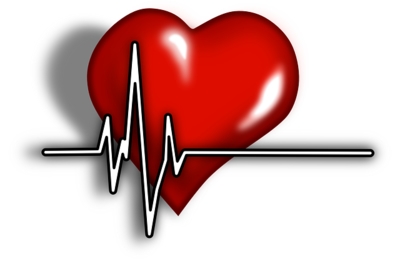Stroke was the fifth leading cause of death in Indiana in 2019. With such a prevalence in our state and community, it’s essential to know how to spot signs of a stroke. You should also know what to do if you or someone you love is experiencing a stroke.
A stroke can cause difficulty speaking or understanding what people are saying. You may also experience paralysis or numbness in your face, arm, or leg. Impaired vision can occur due to damaged nerves and fibers in the brain.
Severe headaches and difficulty walking are also signs of a stroke. The acronym F.A.S.T. can help you spot these signs and know what to do in case of a stroke.

1. Difficulty Speaking and Understanding What Others are Saying
If you’re experiencing a stroke or recovering from one, you may have difficulty speaking or understanding others. In fact, around one in three stroke sufferers will experience difficulty:
- Talking
- Understanding others
- Reading
- Writing
The symptoms you experience will depend on the part of your brain that’s been affected. Problems with spoken or written language are known as aphasia. This language disorder can affect you in different ways. For instance, you may understand what others are saying but can’t speak. On the other hand, you may be able to talk but your words are random or made-up.
It’s also possible to develop a speech disorder due to stroke. In this case, the muscles in your tongue, lips, and other parts of your mouth may become severely weakened. In others, your brain is unable to make them work together properly. Slurred speech or trouble speaking in a normal tone may be dysarthria, while struggling to pronounce words correctly may be apraxia.
2. Numbness in Face, Arm, or Leg
You may experience paralysis or numbness in your face, arm, or leg if you’re having a stroke. However, this usually only affects one part of your body. If you suspect you’re having a stroke, try raising both of your arms over your head at the same time. Difficulty keeping one arm raised is a common indicator of a stroke.
Paralysis, numbness, or weakness on one side of your body is the result of damage to your secondary brain cells. This damage makes it more difficult for them to communicate with the nerves and cells that control your bodily movement.
3. Difficulty Seeing Out of One or Both Eyes
Vision problems are another sign of a stroke. In this case, you may experience decreased or double-vision. Decreased vision is the result of the fibers that send visual information from the eyes to the brain becoming damaged. Double-vision occurs when the nerves in charge of moving and aligning your eyes are damaged. This may occur in both eyes or only one. You may also experience something like a curtain coming down in one of your eyes as well
It is possible for vision problems due to stroke to improve over time. However, some of the effects may be permanent. It’s important to start taking steps to avoid having a stroke now to avoid long-term or even permanent damage to your vision.
4. Severe Headaches
Headaches can also signal the onset of a stroke. While we all experience headaches from time to time, these aren’t the type to be cured by ibuprofen. These headaches can be extremely painful and appear without warning. What’s more, they can be accompanied by:
- Dizziness
- Vomiting
- Impaired consciousness
You can usually tell what’s causing a normal headache. It may be that you’ve been staring at a computer screen for too long or have spent too much time in the sun. These are a far cry from stroke-related headaches which appear without warning. They should be treated immediately by a medical professional.
5. Difficulty Walking
A stroke can damage parts of your brain that coordinate ordinary movements such as walking. This causes signals that had previously helped you walk to become scrambled, resulting in your muscles not working correctly.
Difficulty walking can occur for different reasons, including:
- Weakened muscles
- Spasticity
- Inability to move your feet
A stroke may cause you to stumble when you walk or to lose your balance. You may also experience sudden dizziness, making it harder for you to move safely.
Putting The Signs of a Stroke Together with F.A.S.T.
As the fifth leading cause of death in Indiana, it’s important that you recognize the warning signs of a stroke. It could save a life. If you think you or someone you know is having a stroke then it’s time to think F.A.S.T.
F.A.S.T. is short for:
- Face drooping
- Arm weakness
- Speech
- Time to call 9-1-1
The first three letters are key signs of a stroke. If you or someone you know is exhibiting these signs then you know it’s time to call 9-1-1 immediately.
F.A.S.T. is an acronym developed by UK physicians in the 1980s. It’s designed to help individuals, EMTs, and emergency departments spot and respond to a possible stroke. By learning the warning signs, you’ll be prepared to get yourself or someone else much needed medical attention.
TCAR Treatment for Stroke in Evansville, IN
There are different types of stroke and different methods to treat them. One cause of stroke is known as carotid artery disease, which is when the carotid arteries in your neck become blocked. Around 10% to 20% percent of strokes are due to carotid artery disease, which is why our team at Evansville Surgical Associates utilizes multiple different approaches, as well as the TCAR procedure to treat blockages.
Short for transcarotid artery revascularization, TCAR reverses blood flow temporarily to divert plaque in the bloodstream from the brain in order to decrease the risk of stroke during the procedure and place a carotid artery stent to keep the carotid artery open, so that blood can flow freely without being blocked by plaque.
Are you concerned about your risk of stroke and how to prevent it? Call us today at (812) 424-8231 or (800) 264-8231 to schedule your appointment!
Evansville Surgical Associates has been providing comprehensive and compassionate surgical care for over 50 years. Call us at (812) 424-8231 or (800) 264-8231. We are available from 8:00 am to 4:30 pm if you would like to schedule an appointment.



